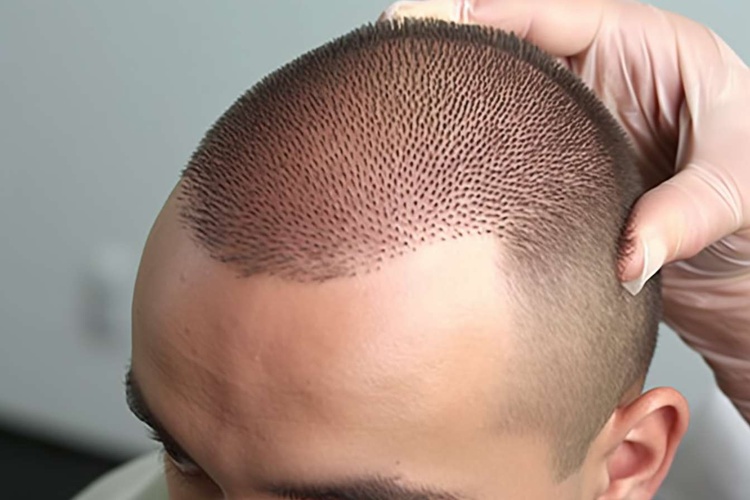Scalp Psoriasis Explained: Symptoms, Causes, and Relief Options
Scalp psoriasis is a chronic skin condition that can cause itching, flaking, and discomfort. In this article, we explore the key symptoms, possible causes, and treatment options that can help manage flare-ups and improve your quality of life without making exaggerated claims.

What are the common symptoms of scalp psoriasis?
Scalp psoriasis manifests through various symptoms that can range from mild to severe. The most common signs include:
-
Red, raised, inflamed patches on the scalp
-
Silvery-white scales or flakes that shed from the affected areas
-
Intense itching and burning sensations
-
Dry, cracked skin that may bleed when scratched
-
Temporary hair loss in severe cases
These symptoms can extend beyond the hairline, affecting the forehead, back of the neck, and around the ears. It’s important to note that scalp psoriasis can be mistaken for dandruff, but the two conditions are distinct and require different treatments.
What triggers scalp psoriasis flare-ups?
While the exact cause of scalp psoriasis remains unknown, several factors can trigger or exacerbate flare-ups:
-
Stress: High levels of stress can weaken the immune system and trigger psoriasis outbreaks.
-
Cold weather: Dry, cold conditions can worsen symptoms and lead to more frequent flare-ups.
-
Infections: Strep throat and other infections may trigger psoriasis in some individuals.
-
Certain medications: Beta-blockers, lithium, and antimalarial drugs can potentially trigger outbreaks.
-
Skin injuries: Cuts, scrapes, or severe sunburns may lead to the development of new psoriasis patches.
-
Alcohol consumption: Excessive drinking can interfere with treatment effectiveness and worsen symptoms.
-
Smoking: Tobacco use may increase the risk of developing psoriasis and exacerbate existing conditions.
Understanding these triggers can help individuals better manage their condition and reduce the frequency of flare-ups.
What are the most effective treatment options for scalp psoriasis?
Treatment for scalp psoriasis typically involves a combination of approaches tailored to the severity of the condition and individual patient needs. Some of the most effective options include:
-
Topical treatments: Corticosteroid creams, ointments, or shampoos can help reduce inflammation and itching.
-
Medicated shampoos: Products containing salicylic acid, coal tar, or ketoconazole can help remove scales and soothe the scalp.
-
Systemic medications: For severe cases, oral or injectable medications like methotrexate or biologics may be prescribed.
-
Phototherapy: Controlled exposure to ultraviolet light can slow skin cell growth and reduce inflammation.
-
Vitamin D analogues: Topical treatments containing synthetic vitamin D can help slow skin cell growth.
-
Retinoids: These vitamin A derivatives can help normalize skin cell production and reduce inflammation.
It’s crucial to work closely with a dermatologist to develop a personalized treatment plan that addresses your specific symptoms and needs.
How can you manage scalp psoriasis flare-ups at home?
While professional treatment is essential, there are several strategies individuals can employ to manage scalp psoriasis at home:
-
Gentle hair care: Use lukewarm water and mild shampoos to avoid irritating the scalp.
-
Moisturize regularly: Apply moisturizing treatments to keep the scalp hydrated and reduce flaking.
-
Avoid scratching: Use a soft-bristled brush to gently remove scales instead of scratching.
-
Stress management: Practice relaxation techniques like meditation or yoga to reduce stress-related flare-ups.
-
Dietary adjustments: Some people find relief by reducing inflammatory foods and increasing omega-3 fatty acids in their diet.
These home remedies can complement professional treatments and help alleviate symptoms between flare-ups.
What role does diet play in managing scalp psoriasis?
While there’s no definitive “psoriasis diet,” some dietary changes may help reduce inflammation and improve symptoms:
-
Increase omega-3 fatty acids: Found in fish, flaxseed, and walnuts, these can help reduce inflammation.
-
Consume antioxidant-rich foods: Colorful fruits and vegetables may help combat oxidative stress.
-
Limit processed foods: Reducing intake of refined sugars and saturated fats may help manage symptoms.
-
Consider probiotics: Some studies suggest that gut health may influence psoriasis severity.
-
Stay hydrated: Drinking plenty of water can help keep the skin hydrated and potentially reduce flaking.
It’s important to note that dietary changes should be made in consultation with a healthcare provider, as individual responses may vary.
What are the latest advancements in scalp psoriasis treatment?
Recent years have seen significant advancements in the treatment of scalp psoriasis:
-
Biologics: These targeted therapies work by blocking specific components of the immune system involved in psoriasis.
-
JAK inhibitors: A new class of oral medications that show promise in treating moderate to severe psoriasis.
-
Personalized medicine: Genetic testing is being explored to tailor treatments to individual patients.
-
Combination therapies: Using multiple treatments together for enhanced effectiveness.
-
Improved delivery systems: New formulations of topical treatments designed for better scalp penetration.
| Treatment Type | Example Products | Estimated Cost Range (Monthly) |
|---|---|---|
| Topical Corticosteroids | Clobetasol, Betamethasone | $30 - $150 |
| Medicated Shampoos | Neutrogena T/Gel, Nizoral | $10 - $40 |
| Systemic Medications | Methotrexate, Otezla | $500 - $3,000+ |
| Biologics | Humira, Stelara | $2,000 - $5,000+ |
| Phototherapy | In-office or at-home units | $100 - $300 per session |
Prices, rates, or cost estimates mentioned in this article are based on the latest available information but may change over time. Independent research is advised before making financial decisions.
In conclusion, scalp psoriasis is a complex condition that requires a multifaceted approach to management. By understanding the symptoms, triggers, and available treatment options, individuals can work with their healthcare providers to develop effective strategies for controlling flare-ups and improving their quality of life. As research continues, new and more targeted treatments offer hope for better management of this challenging condition.
This article is for informational purposes only and should not be considered medical advice. Please consult a qualified healthcare professional for personalized guidance and treatment.




